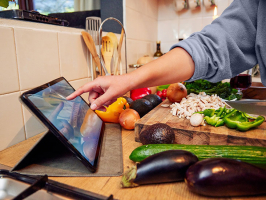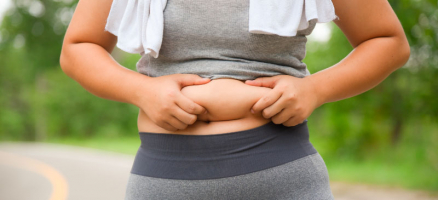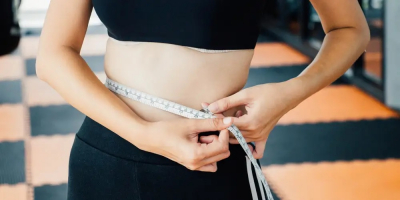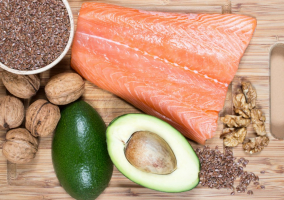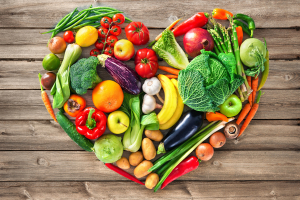Top 10 Morning Habits That Help You Lose Weight
The morning routine sets the tone for the rest of your day. According to research, a healthy routine is related to long-term weight loss and good habits in ... read more...general. Practice these weight-loss morning habits below and see the difference they make in your life, both physically and psychologically!
-
Breakfast is regarded as the most essential meal of the day. What you eat for breakfast has the potential to set the tone for the rest of your day. It affects whether you'll be satisfied till lunchtime or whether you'll be hitting the vending machine before your lunchtime. A high-protein breakfast may help you lose weight by reducing cravings.
A high-protein breakfast reduced post-meal cravings more efficiently than a low-protein breakfast in a trial of 20 teenage girls. When compared to a normal protein breakfast, another small study found that having a high-protein breakfast was related to less fat accumulation, reduced daily intake, and hunger. Protein may also help with weight reduction by lowering ghrelin levels, the "hunger hormone" that increases appetite. In fact, a high-protein breakfast suppressed ghrelin release more efficiently than a high-carb breakfast in a study of 15 men. Consider protein options such as eggs, Greek yogurt, cottage cheese, almonds, and chia seeds to help start your day off effectively.
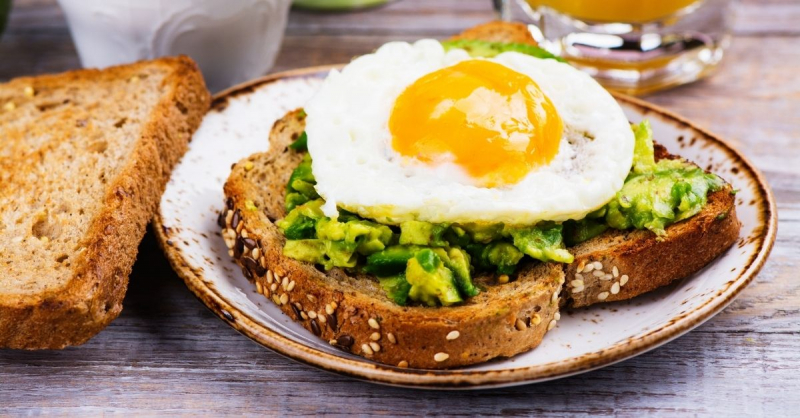
Eat a High-Protein Breakfast 
Eat a High-Protein Breakfast -
Starting your day with a glass or two of water is a simple way to help you lose weight. For at least 60 minutes, water can help you increase your energy expenditure, or the number of calories your body burns. Drinking 16.9 fluid ounces (500 ml) of water increased metabolic rate by 30% on average in one small research.
Another study found that overweight women who increased their water intake to more than 34 ounces (one liter) per day lost an additional 4.4 pounds (2 kg) over the course of a year without changing their diet or exercise routine. Furthermore, drinking water has been shown to reduce appetite and food intake in some people. Drinking 16.9 fluid ounces (500 ml) of water reduced the number of calories consumed at breakfast by 13% in a study of 24 older adults. In fact, most studies on the topic have found that consuming 34–68 ounces (1–2 liters) of water per day can help you lose weight. Starting your day with a glass of water and remaining hydrated throughout the day is a great way to lose weight quickly and easily.

Drink Plenty of Water 
Drink Plenty of Water -
Stepping on the scale and weighing yourself each morning might help you stay motivated and improve your self-control. A number of studies have linked daily weighing to faster weight reduction.
A study of 47 people found that those who weighed themselves every day dropped around 13 pounds (6 kg) more over the course of six months than those who did not. Adults who weighed themselves daily shed 9.7 pounds (4.4 kg) on average during a two-year period, while those who weighed themselves once a month gained 4.6 pounds (2.1 kg), according to another study. Weighing yourself every morning can help you build healthy habits and behaviors that can help you lose weight. Self-weighing on a regular basis was linked to better restraint in one large study. Furthermore, those who stopped weighing themselves on a regular basis reported higher calorie intake and less self-control. So weigh yourself first thing in the morning for the best results.
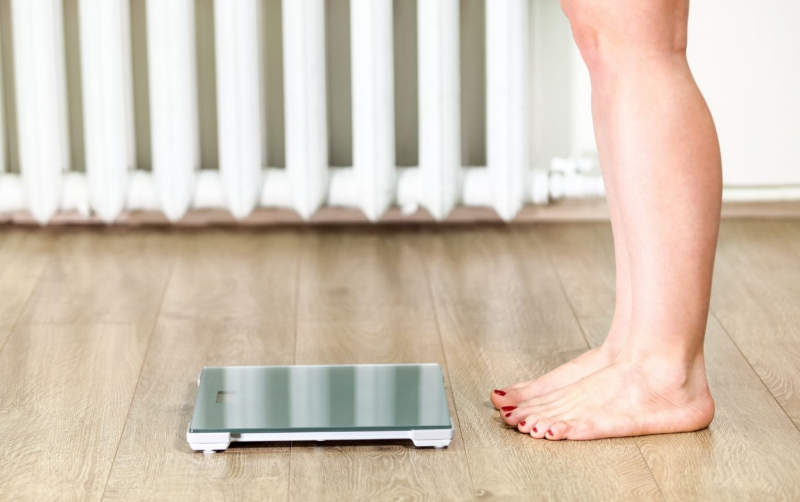
Weigh Yourself 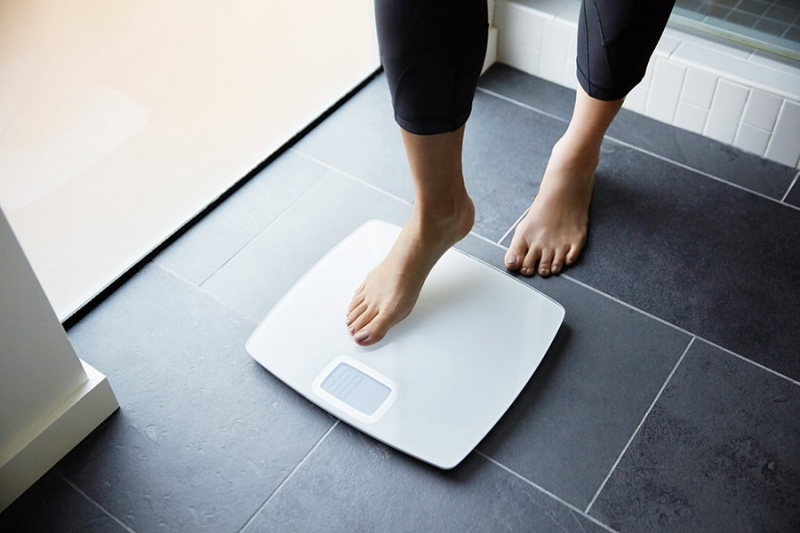
Weigh Yourself -
Opening the curtains to allow some natural light in or spending a few extra minutes outside each morning might help you lose weight faster. One small research discovered that exposure to even moderate levels of light at specific times of the day might affect weight. Furthermore, mice on a high-fat diet were shown to gain less weight after being exposed to UV light in one animal research.
Sunlight is also the most effective approach to meeting your vitamin D requirements. According to some research, getting enough vitamin D might help you lose weight and even prevent weight gain. 218 overweight and obese women were given either vitamin D supplements or a placebo for a year in one research. Those who met their vitamin D requirements shed an average of 7 pounds (3.2 kg) more than those who had insufficient vitamin D blood levels at the end of the study.

Get Some Sun 
Get Some Sun -
Mindfulness is a practice of completely concentrating on the present moment and becoming aware of your thoughts and feelings. It has been proven that the practice aids weight loss and encourages good eating habits. According to a review of 19 trials, mindfulness-based therapies enhanced weight loss and reduced obesity-related eating behaviors. According to another analysis, mindfulness training resulted in considerable weight loss in 68% of the studies reviewed.
It's easy to practice mindfulness. To begin start, sit comfortably in a calm space for five minutes each morning and connect with your senses. Breathe in through your nose and out through your mouth for three long, deep, nourishing breaths. Allow your breath to settle into its own rhythm by just following it in and out, noticing how your chest and belly rise and fall as you breathe.

Practice Mindfulness 
Practice Mindfulness -
Getting some exercise first thing in the morning will help you lose weight faster. One research looked at the impact of aerobic exercise at different times of the day on 50 overweight women. While there was no significant difference in particular food cravings between those who exercised in the morning and those who exercised in the afternoon, morning exercise was linked with a higher level of satiety.
Exercising in the morning can also help to maintain blood sugar levels throughout the day. Low blood sugar can result in many negative symptoms, including excessive hunger. Working exercise in the morning was linked to better blood sugar control in 35 people with type 1 diabetes, according to one research. These studies, on the other hand, focused on relatively specific populations and found an association rather than a causation. There is a need for more study on the impacts of morning exercise on the general population.

Squeeze in Some Exercise 
Squeeze in Some Exercise -
Making the effort to prepare and pack your lunch ahead of time might be an easy way to improve your eating habits and slim down. Meal planning was linked to better diet quality, more diet diversity, and a decreased risk of obesity in one large research including 40,554 people.
Another study discovered that eating more home-cooked meals was linked to better diet quality and a lower risk of extra body fat. Those who ate home-cooked meals at least five times per week were 28% less likely to be overweight than those who ate them three times or less each week. Set up a few hours one night a week to plan and prepare your meals so that you may grab your lunch and leave in the morning.
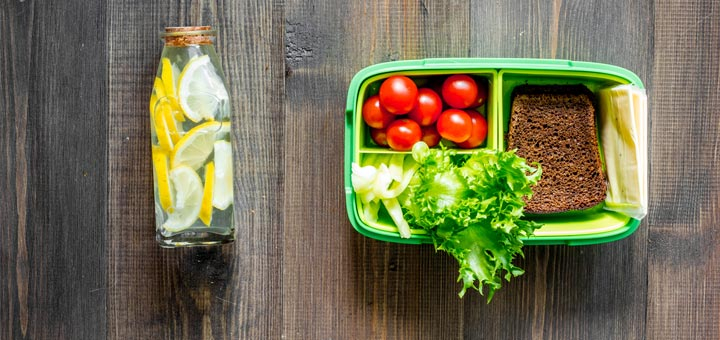
Pack Your Lunch 
Pack Your Lunch -
Going to bed earlier or setting your alarm clock later to get more sleep may help you lose weight. Sleep deprivation has been linked to an increase in appetite in a number of studies.
Sleep deprivation increased hunger and cravings, particularly for high-carb, high-calorie foods, according to one small research. Sleep deprivation has also been linked to an increase in calorie consumption. In one study, 12 participants consumed 559 more calories on average after only four hours of sleep compared to when they slept for eight hours. Along with eating well and exercising, establishing a healthy sleep routine is essential for weight reduction. Aim for at least eight hours of sleep every night to get the best outcomes.

Sleep Longer 
Sleep Longer -
While driving is one of the most convenient ways to get to work, it is not always the healthiest option. Walking, biking, or using public transportation has been linked to lower body weight and a decreased risk of weight gain in studies.
Over the course of four years, one research followed 822 people and discovered that those who commuted by automobile gained more weight than those who did not. Similarly, a study including 15,777 people found that taking public transportation or active modes of transportation, such as walking or bicycling, was linked to a lower BMI and body fat percentage than taking private transportation. According to studies, every hour you spend driving increases your risk of obesity by 6%, but every hour you spend walking lowers your risk by 4.8%. Even if you use the train or bus, walking to and from the stations might help you get some exercise.
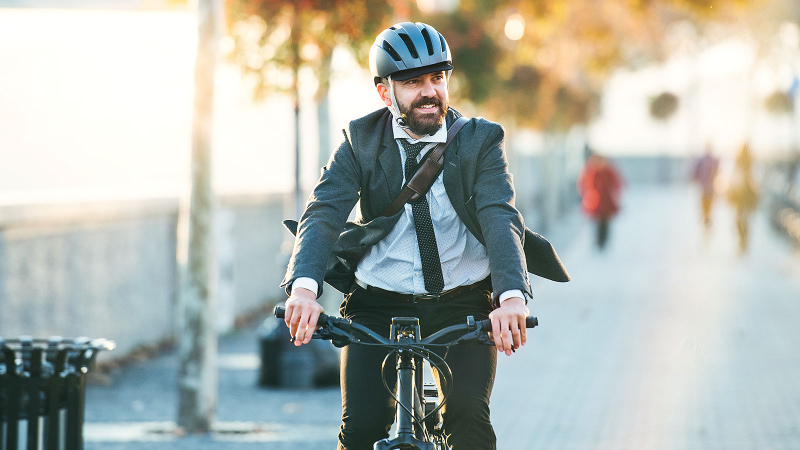
Switch up Your Commute 
Switch up Your Commute -
Keeping a food diary to track what you eat might be a good way to help you lose weight and stay accountable. Calorie counting can help you combat overeating by giving you a better understanding of how much you are really consuming.
One study followed the weight loss of 123 people for a year and discovered that keeping a food journal was linked to more weight loss. Another research found that participants who used a tracking system to self-monitor their diet and exercise on a regular basis lost more weight than those who did not. Similarly, a study of 220 obese women found that using a self-monitoring tool on a regular basis improved long-term weight control. Starting with your first meal of the day, try using an app or even simply a pen and paper to keep track of everything you eat and drink.
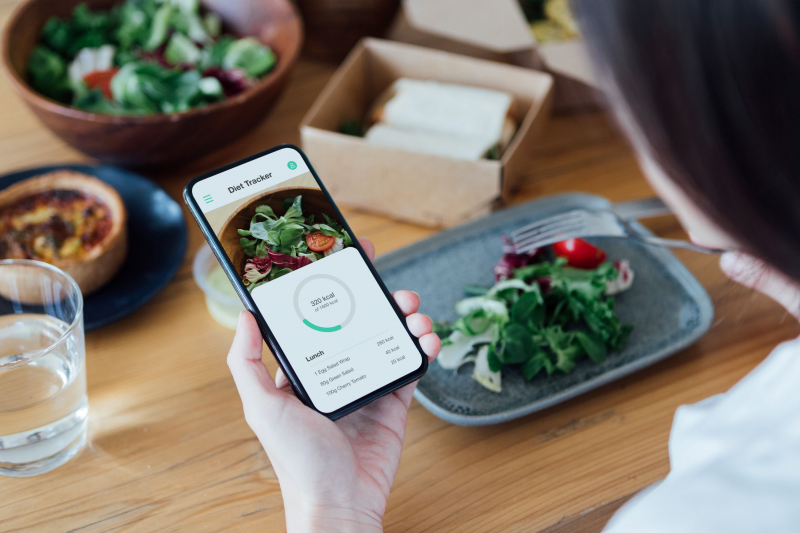
Start Tracking Your Intake 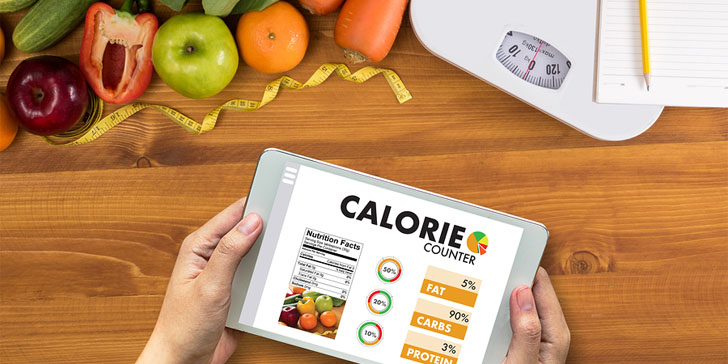
Start Tracking Your Intake













